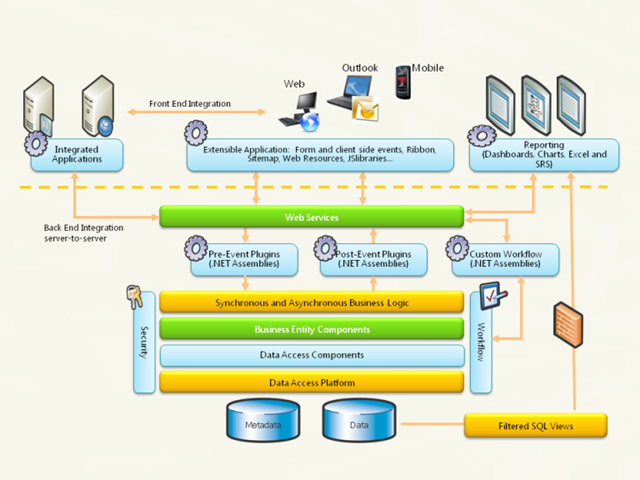The Extensibility Model of Microsoft Dynamics CRM
The extensibility platform is the heart of Microsoft Dynamics CRM 2011 and Microsoft Dynamics CRM Online. When you use the Microsoft Dynamics CRM SDK, you are building on top of this system. The Microsoft Dynamics CRM platform supports several types of deployments with the power of choice: Microsoft Dynamics CRM Online, Microsoft Dynamics CRM installed on your own server (on-premises), or a hosted deployment of Microsoft Dynamics CRM. The security model protects the platform from unauthorized access across the Web.
When you develop an application that uses the Microsoft Dynamics CRM server, you use Web services to communicate with the underlying xRM platform layer. Microsoft Dynamics CRM uses a metadata driven architecture to provide the flexibility to create custom entities and additional system entity attributes and also to make upgrades and enable transportation of solutions easier. This allows for changes in the data structure without requiring any change to code in Microsoft Dynamics CRM.
The xRM platform does not impose business-specific logic. This layer imposes only generic constraints such as security. It contains the building blocks for an application, but by itself is nothing more than a collection of related objects. However, the interaction between those objects is used to implement more extensible logic such as the quote-to-order-to-invoice processing and pricing logic.
The xRM platform also controls access to data through security, controls access to the database, and raises events for workflow processes and custom business logic implementations (plug-ins). The platform layer provides for both incoming and outgoing e-mail processing through Microsoft Exchange Server .
